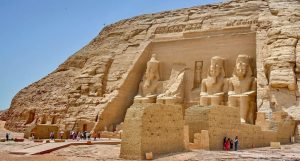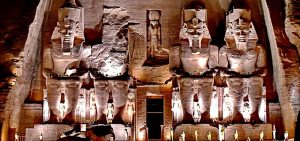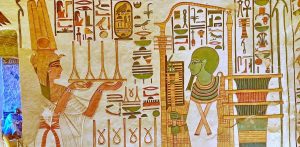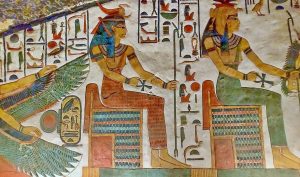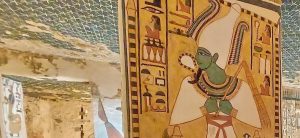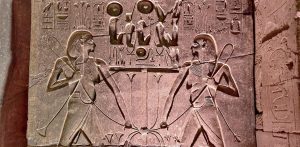Shopping in Cairo may be difficult. The huge metropolis is densely packed with marketplaces and souks. Some are designed for tourists and are attractive and vibrant locations where you may enjoy wandering between stores and perhaps snap fantastic photographs of the gorgeous colorful items such as souvenirs, spices, Egyptian statuettes, and African amulets. Shopping in such areas, on the other hand, maybe a pain in the a$$. There is no fixed pricing, and you must haggle the price, which is tough because you have no idea where to begin or what the true price is! In this scenario, a local tour guide might be of great assistance.
There is a large tourist market in every major tourist city in Egypt, such as Khan El-Khalili in Cairo, Aswan Bazaar, Luxor Bazaar, and comparable smaller bazaars at every tourist attraction.
The Souks, or small marketplaces, as well as the bigger bazaars, are among Egypt’s most spectacular attractions. Anyone would tell you that the Khan El Khalili Market in Cairo’s Hussein District is the most renowned and largest market in Egypt.
This 500-year-old tangle of alleys, lanes, boutiques and shops is located in the heart of Islamic Cairo and is one of the most famous tourist marketplaces in the world.
When you first arrive in Khan El-Khalili, you’ll want to start shopping for mementos to take home with you. But you might want to hold off!
However, if visitors investigate the bazaar’s alleyways and little passageways, they will discover modest workshops creating beautiful jewelry, glass, copper, and brassware. The cost is high because you generally pay the tourist pricing, which is significantly more than the amount locals pay for the same exact goods.
As I said earlier, Egypt features several more notable markets spread throughout many towns and areas, such as the markets of Alexandria, Port Said, and, since it is a tax-free zone, the Luxor touristy and local markets, the Aswan touristic markets, and many other markets in Cairo and around Egypt.
One of the most crucial skills that foreigners, and even Egyptians, must acquire before buying at one of these markets, particularly the touristic ones, is how to barter and negotiate for the best price. Bargaining has long been a craft in many nations throughout the world, and it is the art of convincing the storekeeper to give you the greatest items at the best rates possible using a variety of well-known tactics.
In contrast to the traditional nature of local markets, or souks as they are known in Arabic, many larger cities in Egypt, such as Cairo and Alexandria, have large malls and shopping centers, such as City Stars, Nile Hilton Mall, Nile Mall, and Geneina Mall in Cairo, and San Stefano Mall, Zahran Mall, and Grand Plaza Mall in Alexandria, where globally recognized brand names can be found.
How to Bargain in Egypt:
Some think that from ancient times, selling and purchasing things in Egypt has always been a ritual in which the goal is not simply haggling for a lower price, but an affair in which the vendor and buyer would bargain such that both of them are satisfied at the end.
Traditionally, the vendor or owner of the business would invite travelers for a cup of tea or coffee while flipping the premises upside down to show off his items in the greatest ways imaginable. Tourists, on the other hand, should not feel obligated to buy anything until they find something they particularly love.
When you locate an item that truly interests you, especially if it’s a costly product, one of the best negotiation tactics in Egypt, and maybe in many markets across the world, is to give the vendor half the price the seller has indicated for the item. Of course, the store owner will not accept half the price and will cling to his full price, telling visitors how costly and wonderful his items are, and occasionally lowering the price somewhat. The tourist, on the other hand, should perform the same thing at a somewhat greater price than their initial one. Following that, it is usually a good idea to walk away, which frequently prompts the merchant to ask you back and offer drastically reduced items.
To make things easier for the tourist, he is the one who will always agree to accept the merchandise at the price he desires, and he must ensure that the store owner will never complete a deal at a loss. In this manner, both the customer and the storekeeper are typically satisfied at the end; the buyer received the item he wanted at the price he believed was reasonable, and the shopkeeper earned his profit, no matter how large or small it was.
Egypt’s marketplaces and bazaars provide travelers with a diverse range of items, souvenirs, and presents to select from. However, the quality of the items sold, as well as their pricing, might vary considerably from one location to the next. As a result, guests should be prepared for a lengthy bargaining process in many situations.
Top Souvenirs to buy while in Egypt:
Shisha, traditional Egyptian waterpipes, a vast selection of backgammon boards, colorful boxes, and many other handicrafts created by local craftsmen may be found throughout Egypt’s tourist markets.
Shisha is unquestionably one of the greatest products to get when in Egypt. It is a standard in every coffee shop. A beautiful authentic Egyptian waterpipe, on the other hand, would be an excellent present. Shisha is a kind of tobacco that is packed in a clay pot and is decorated with stainless steel or brass fittings. Chess and backgammon sets are also excellent choices. These sets range in quality, with the lesser ones being poorly crafted and containing few if any, inlays.
The finer chess or backgammon sets, which are quite popular among Egyptians, are crafted of the finest hardwoods and inlaid with wonderful designs of mother-of-pearl, bones, ivory, and a variety of other materials.
Sandals, purses, and shoes are also excellent buys. Leather sandals and bags may be purchased in several tourist markets in Egypt, including Khan El Khalili, Luxor, Aswan, and Sharm El Sheikh.
Egypt is also well-known for its glass goods, such as the hand-blown Muski, as it is known in the nation, which is fashioned into plates, vases, glasses, and candle holders. In nearly all tourist markets in Egypt, there are some wonderful ceramic goods available at very reasonable costs.
Many visitors that visit Egypt encounter Bedouins and their wares. Bedouin jewelry, which usually comes from the Sinai Peninsula and the Siwa Oasis and frequently incorporates a lot of coins in its design, is one of the most appealing Bedouin, handcrafted items in Egypt. Pharaonic, Islamic, and Nubian themes are among the other patterns.
Copper is one of the numerous materials that Egyptian artisans are skilled at utilizing. In Cairo, there is a district known as “Nahaseen” where copper manufacturers specialize in creating a wide range of copper goods.
Furthermore, a broad variety of copper and brass items are available in various marketplaces and stores throughout Egypt. Arabian coffeepots, platters, and hanging lights are among the items available.
Because Egyptian cotton is known across the world as the greatest cotton on the planet, purchasing any cotton-made items in Egypt would be a wise decision. Many shops provide pure cotton manufactured shirts, pants, and the famed traditional Galabeya, the Egyptian loose all-in-one robe, which can be found at touristy and local markets as well as big retail malls. Scarves, bed sheets, and bed coverings are also available virtually everywhere in Egypt.
Belly dance clothes and accessories are very popular items to purchase in Egypt. The belly dance ensembles, with their gleaming and bright clothing and a wide range of accessories, would make an excellent present for both adults and children. A large collection of replicas of nearly all shapes of Pharaonic gods, as well as important rulers and queens of ancient Egypt, are popular tourist souvenirs in Egypt. These artifacts are made of alabaster, mother of pearl, ivory, and ebony, and may be purchased at nearly any tourist market or historical site in Egypt.

